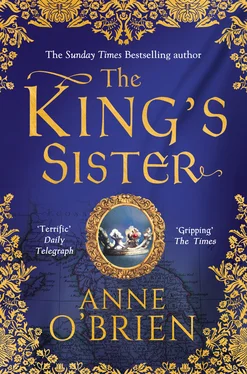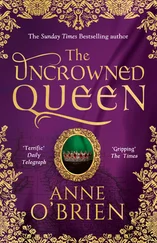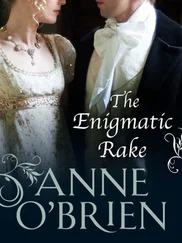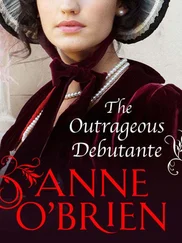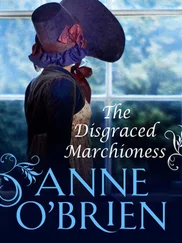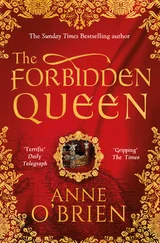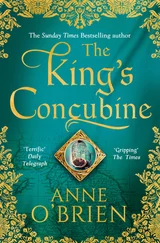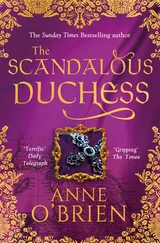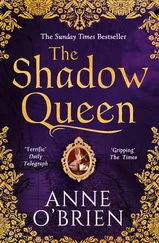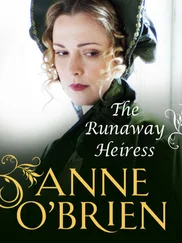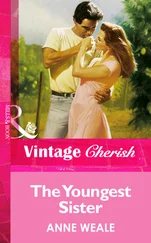‘Stop that!’ my governess said, so that I cast the instrument aside. ‘That is not the way for you. You will not consider it, speak of it. You will honour the memory of your mother and your royal forebears. What would your grandmother Queen Philippa say if she were alive to hear you now?’
Contrition was beyond me. ‘I know not. I barely remember her.’
‘Then I will tell you what she would say,’ returning to clasp my wrists, imprisoning me as she belaboured me with everything I knew by heart about duty and compliance, courtesy and the role of Plantagenet daughters. Halfway through, contrition had reared its uncomfortable head. I might not always find it easy to admit fault, but Dame Katherine left me in no doubt of my sins of pride and self-will.
‘Forgive me.’ At the end. ‘I regret what I said.’
‘I will forgive you. I always forgive you, Elizabeth.’ Yet still she was stern. ‘Because as your erstwhile governess it is my role to forgive you. You might consider that your behaviour reflects on me as much as it paints you in colours of intolerance and sin. It is your duty to make your father proud of you. You will have your own household. You should know that an annual sum of one hundred pounds has been granted for its maintenance.’
‘Because I will be Countess of Pembroke.’
My erstwhile governess nodded, releasing my wrists at last.
‘It is your father’s will, Elizabeth. It will be a good marriage. And when you are twenty-five years old, John will be sixteen, far closer to being an excellent knight and husband. Handsome enough too, I warrant.’
Another eight years to wait. I could not contemplate it.
‘He admired the parrot more than he admired me,’ I stated, furious with the bitterness I could not hide.
‘Then you will have to work hard to change that.’
I stalked to the window to look out at the spread of Lancaster acres, for it was as if the walls of my chamber had suddenly closed in on me, curtailing my freedom, as this marriage would imprison me within an unpalatable situation. Would it matter whether the Earl of Pembroke liked me or not? Since our marriage would be in name only for almost a decade, I could not see the purpose in cultivating the affection of a child. Then another thought struck home and I stopped.
‘Why did you not tell me earlier? Why did you not tell me before you actually had to?’
‘Because I knew that you would not like it,’ she replied without pause.
‘You thought I would make a fuss.’
‘Yes.’
I did not like the implied criticism. ‘Would you have told Philippa? If the Earl had come for her?’
‘Yes. Because she would have the charity in her to make things easy for the boy.’
‘And I wouldn’t.’
Dame Katherine’s raised brows said it all. I did not like the implication. Was I selfish, thoughtless, mindless of the feelings of those around me? I had not thought so.
At that moment I was too cross to give my failings even a passing thought.
On the morning of the following day I stood next to John Hastings before the altar in the chapel at Kenilworth. Not for us a wedding at the church door. My father had wed Blanche beneath a gilded canopy held by four lords at Reading Abbey, in the presence of the old King Edward the Third. No such ostentatious splendour for me and the child Earl, but both of us, and the chapel, were dressed for high ceremonial. As were the guests who crowded in to witness our joining in this auspicious union. The robes of my father’s chaplain were spectacular with red silk and gold thread. The banners of Lancaster and Pembroke all but covered the warm hue of the stonework.
My hand, resting lightly in the boy’s, where my father had placed it as a sign that he was giving me into the young Earl’s keeping, was ice cold: the boy’s was unpleasantly warm and clammy. I glanced at my betrothed, ridiculously elegant in gleaming silk tunic, knowing that he wished himself anywhere but in the chapel. Yet I could not fault his rigid stance, his solemn concentration.
I tried to concentrate on the sacred words but failed miserably, conscious only of the child at my side, and disturbed that Dame Katherine should find my behaviour a cause for concern. Was I always as selfish, as careless of the feelings of others, as she perceived? Assuredly I would prove her wrong today. My demeanour would be faultless. I looked across and smiled at the boy, receiving a beaming grin in return.
Yes, I would be kind to him.
The chaplain, austere with the weight of the burden on his frail shoulders, was frowning at me, reminding me that I had responses to make. And so I did, accepting this boy as my husband as the consecration was brought to an end, trying not to think how ridiculous we might appear together in spite of the outward magnificence of silk and satin and jewelled borders. John Hasting’s head barely reached my elbow.
So it was done. I would never again, in public, wear my hair loose in virginal purity. The boy, with surprising dexterity, pushed a gold ring onto my finger. We kissed each other formally on one cheek and then the other. Then fleetingly on the lips. We were man and wife. I was Countess of Pembroke.
‘Will I be allowed to go to the stables now?’ my husband whispered as I bent to salute him.
‘Soon,’ I whispered back.
‘How long is soon?’
I sighed a little as we joined hands and walked between our well-wishers, out of God’s holy presence into the trials of real life.
We were kissed and patted, feted and feasted, which I tolerated far better than my lord who squirmed with embarrassment and, in the end, with surly boredom, face flushed and eyes stormy. Conducted to the place of honour at the high table, our steward presented the grace cup first to us. My father’s carver carved the venison for us. The festive dishes were placed before us to taste and select before the throng stripped the table bare.
This should have been one of the happiest, most exhilarating days of my life. Instead I was torn between pleasure at my new status as a married, titled lady with the money to pay for a household of my own, and dismay that I had no knight to share it with me. I would have liked my husband to woo me, to show admiration for my person. To enjoy my company, whether to dance or sing or read the French tales of love. Of course he would go to war, win glory in tournaments, take his rightful place at court, but he would return to me. He would give me gifts and express a desire to spend time in my company. My husband too would be elegant and charming, well versed in the art of seduction with words and music, gracious and sophisticated.
At least he would have admired the dress that had been stitched for my marriage—for how long had my father known of this union with Pembroke? —with the symbols of Lancaster and Pembroke twining together along hem and the edges of my oversleeves. Such a magnificent heraldic achievement could not go unnoticed by the lord for whose new pre-eminence it was created.
John Hastings paid no heed.
‘My lady! What is it that I am expected to do now?’ the sibilants hissed sotto voce, the boy at my side rubbing the bridge of his nose with his finger, without grace or elegance, and looking hunted after our steward had bowed before him with yet another platter of aromatic meat for him to taste.
I was sure that he had been taught how to conduct himself, but he had not yet been sent to be a page in some noble household, and the heavy significance of the occasion robbed him of any immature confidence that might have been instilled in him by his lady mother. I tried not to sigh. It was not his fault.
‘We eat first,’ I explained. ‘The feast is for us.’
‘Good.’ His eye brightened a little. ‘I will have some of that …’
Читать дальше
